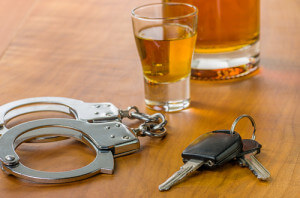Unfortunately, boating under the influence season is here. The last day of school is here! Recreational boaters take to the local waterways to enjoy the summertime sunshine during boating season.
Since college and university students are out for the summer as well, young people and families will take advantage of the outdoors. Many will boat in the marina, Pacific Ocean, and local lakes. However, a nationwide initiative is underway to enforce boating under the influence laws.
Many people who enjoy boating in the summertime sun also like to have a cold beer or two while out on the water. However, even if you don’t take to the highways after boating, you can still be charged with operating under the influence if your watercraft is stopped and you are determined to be under the influence of alcohol or drugs.
Boating Under the Influence is a Crime
Boating under the influence, or BUI, is a violation under the California Harbors and Navigation Code, with possible penalties of up to $1,000 fines and up to 6 months in jail. As part of Operation Dry Water, agencies across the country participate in the program to raise awareness. Additionally, the program increases enforcement of boating under the influence laws. Locally, the Los Angeles Sheriffs at Castaic/Pyramid Lakes and Marina del Rey; the Los Angeles Port Police; and U.S. Coast Guard are participating in the program. June 26 to 28, 2015 is now the Operation Dry Water heightened enforcement weekend.
Operation Dry Water
Operation Dry Water has been an annual tradition in BUI enforcement over the years. Launched in 2009 by the National Association of State Boating Law Administrators with the Coast Guard, the mission of the operation is to bring awareness and education to recreational boaters about the dangers of alcohol and drug use while out on the water. According to the U.S. Coast Guard, alcohol is the primary contributing factor in recreational boating fatalities. Agencies will put out increased patrols to look for boaters with a blood alcohol content (BAC) over the 0.08% California limit. Boaters found to be intoxicated may face arrest for a BUI.
We have a number of outdoor recreation areas for boating here in Southern California. These areas include Marina del Rey, the Port of Los Angeles, Lake Perris, Big Bear Lake, Lake Arrowhead, Lake Castaic, and even the Colorado Lagoon in Long Beach. Make sure you understand the California BUI laws before taking to the water in any of these lakes, beaches, or parks this weekend.
BUI Convictions
A BAC of greater than 0.05%, but less than 0.08% does not create a presumption of intoxication. However, it is a sign of intoxication, which police may use as evidence. However, a BAC of 0.08% or greater creates a presumption that the boater was under the influence of alcohol. For boaters under the age of 21, there is a zero-tolerance policy towards BUIs. Knowing this, an individual under 21 with a BAC of only 0.01% or greater will face arrest. A BUI conviction counts towards a prior offenses. A drunk driving conviction within 10 years of a BUI is technically a second DUI. The penalties will increase from the first conviction.
Kavinoky Law Firm
If you find yourself under arrest for driving or boating under the influence, call an experienced criminal defense attorney at The Kavinoky Law Firm immediately. We employ your Top DUI Lawyer LA, CA. We hire the best attorneys in Los Angeles to provide the best defense possible. Call anytime 24/7. We don’t sleep – so you can.




